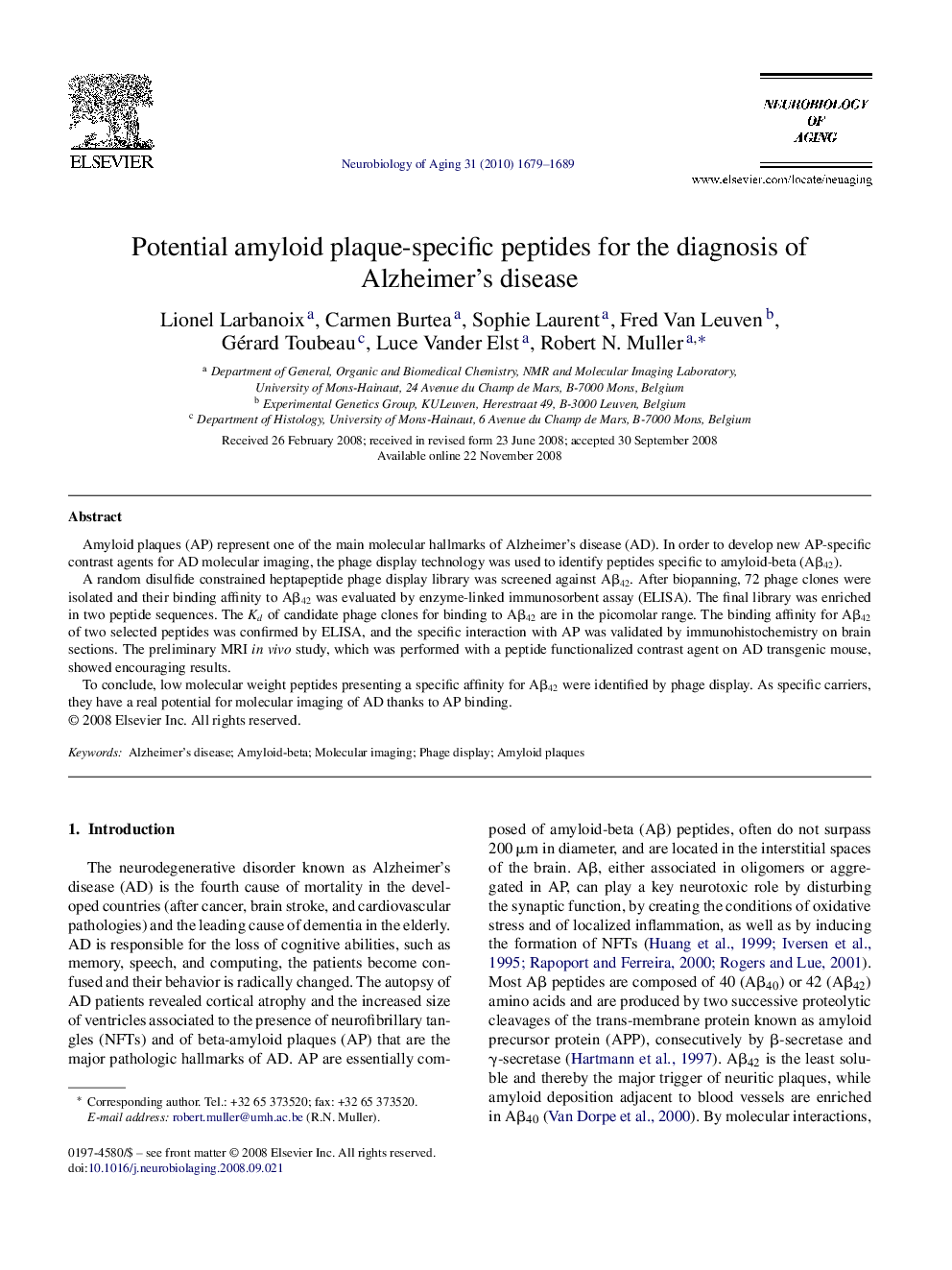| Article ID | Journal | Published Year | Pages | File Type |
|---|---|---|---|---|
| 328652 | Neurobiology of Aging | 2010 | 11 Pages |
Amyloid plaques (AP) represent one of the main molecular hallmarks of Alzheimer's disease (AD). In order to develop new AP-specific contrast agents for AD molecular imaging, the phage display technology was used to identify peptides specific to amyloid-beta (Aβ42).A random disulfide constrained heptapeptide phage display library was screened against Aβ42. After biopanning, 72 phage clones were isolated and their binding affinity to Aβ42 was evaluated by enzyme-linked immunosorbent assay (ELISA). The final library was enriched in two peptide sequences. The Kd of candidate phage clones for binding to Aβ42 are in the picomolar range. The binding affinity for Aβ42 of two selected peptides was confirmed by ELISA, and the specific interaction with AP was validated by immunohistochemistry on brain sections. The preliminary MRI in vivo study, which was performed with a peptide functionalized contrast agent on AD transgenic mouse, showed encouraging results.To conclude, low molecular weight peptides presenting a specific affinity for Aβ42 were identified by phage display. As specific carriers, they have a real potential for molecular imaging of AD thanks to AP binding.
